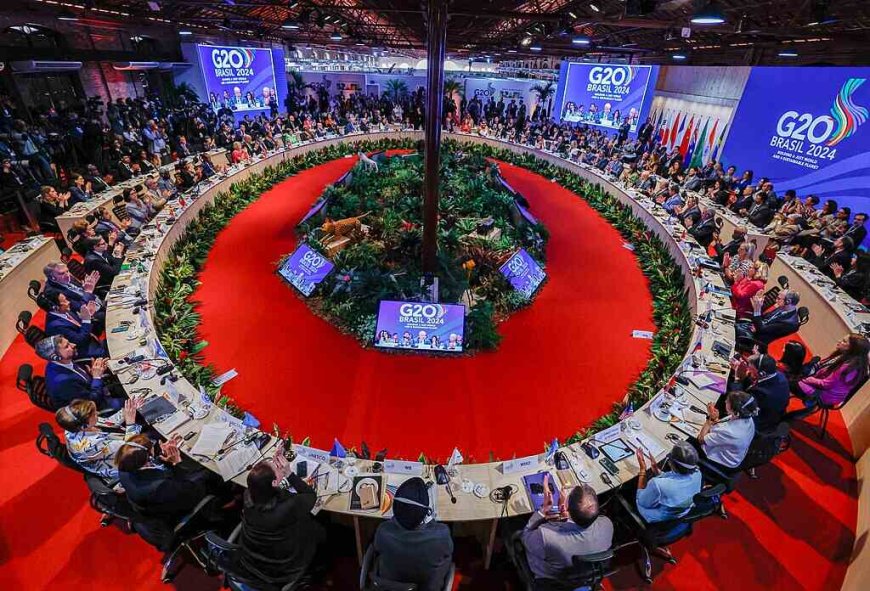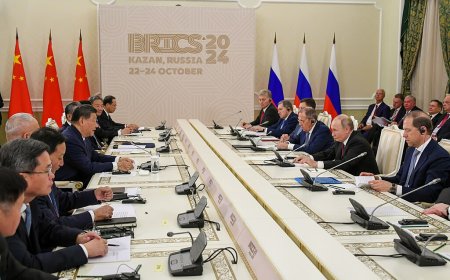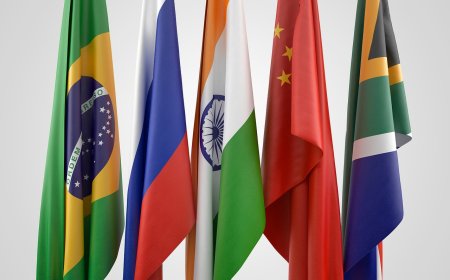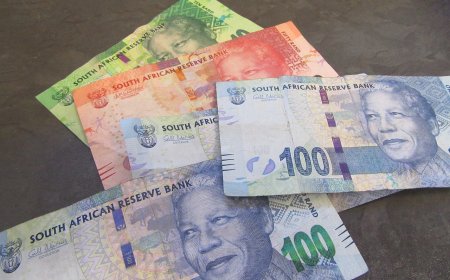Summary
- Africa remains at the epicentre of the global debt crisis, with existing debt frameworks insufficient for addressing the complexities faced by African countries.
- There is a real need to reduce debt burdens, especially for countries facing vulnerabilities like climate change.
- There is a need for comprehensive reforms in global financial and debt structures and to enhance African countries’ voices and decision-making power within these frameworks.
- The upcoming South African G20 presidency, combined with the African Union’s newly established permanent seat, represents a strategic opportunity to place Africa’s debt concerns at the forefront of the G20 agenda and advocate for systemic reforms.
- South Africa has shown a clear intention to work in solidarity with the rest of the African continent and other developing countries, emphasising its prioritisation of these regions in its G20 agenda.
Introduction
The Group of Twenty (G20), a collection of the world’s largest economies, plays a critical role in shaping global economic policies. This group comprises 19 countries: Argentina, Australia, Brazil, Canada, China, France, Germany, India, Indonesia, Italy, Japan, the Republic of Korea, Mexico, Russia, Saudi Arabia, South Africa, Turkey, the United Kingdom and the United States), as well as the European Union (EU) and the African Union (AU). Prior to the AU joining the G20 as a permanent member in 2023, the G20 represented 85% of global GDP, 75% of international trade and two-thirds of the world’s population.1 The inclusion of the AU is particularly significant as it represents 55 member states with a combined GDP of USD 3 trillion and a population of 1.4 billion people.2
This group, which was initially established in response to the 1997-1998 Global Financial Crisis, has continued to play a critical role in responding to financial crises and in addressing broader global challenges, such as the growing debt burden in developing countries. As such, the rotating presidency of the G20 is more than a symbolic position; it gives the presiding country the opportunity to set the agenda, steer discussions and push forward reforms that reflect global priorities. Brazil holds the G20 presidency for 2024, taking over from India, which led the group in 2023. Looking ahead, South Africa is scheduled to host the G20 summit in 2025, followed by the United States in 2026. South Africa will take over the presidency on 1 December 2024.
Africa is facing a debt crisis that threatens economic stability, growth and development. In 2023, more than half of low-income African countries were either in debt distress or at high risk of it, underscoring the urgent need for comprehensive solutions. Through mechanisms such as the Debt Service Suspension Initiative (DSSI) and the Common Framework for Debt Treatments, the G20 has played a constructive role in tackling these mounting issues. However, there remains a need for innovative and inclusive approaches to debt restructuring and relief. This emphasises the importance of including African nations in discussions and decision-making processes to develop comprehensive solutions to debt crises.
This article, which focuses on South Africa’s presidency in the context of the global debt agenda, argues that the presidency presents a unique opportunity to reform global economic governance by integrating sustainable finance into the conversation on debt vulnerability, particularly in Africa. It also provides a critical platform to advance the reform of global debt governance by aligning debt treatment initiatives with climate resilience and sustainable development goals. This leadership role offers the chance to address Africa’s sovereign debt crisis in a way that promotes long-term economic stability and equity, while pushing for innovative financing solutions to meet both development and climate adaptation needs. Finally, as has been the case with the past two presidencies of Brazil and India, the role again presents an opportunity for greater representation of developing countries in international financial decision-making processes. South Africa, as a member of both the G20 and the AU, and as the future holder of the G20 presidency, is uniquely positioned to champion necessary reforms and push them through. The presidency of the G20 also works within a ‘troika’ system, which comprises the past, present and future presidents working together. This system creates some element of consistency and longevity in the G20s agenda. The Troika during South Africa’s presidency will comprise of Brazil, South Africa and the United States of America.
The importance of public debt in Africa’s agenda and the vital role of the G20
South Africa’s G20 presidency is coming at a critical time. Africa is currently facing one of its worst sovereign debt crises, which threatens to reverse years of development gains and historical debt relief efforts. According to the United Nations Conference on Trade and Development (UNCTAD), Africa’s debt has surged by 183% since 2010, a rate nearly four times faster than the continent’s GDP growth in dollar terms.3 With debt levels soaring across the continent, many African nations are struggling to manage debt repayments while also addressing pressing social and economic needs. While interest payments in developing countries have risen by around 64% over the past decade, Africa has experienced a staggering 132% increase, significantly limiting investment in essential public services.4 Alarmingly, about 57% of Africa’s population – roughly 751 million people – now live in countries that allocate more funds to interest payments than to critical sectors such as healthcare, education and infrastructure.5 The rise in public debt interest payments is driven by several factors, including increasing debt levels that amplify the cost of servicing debt, higher global interest rates and the depreciation of local currencies against major reserve currencies like the US dollar, in which much of Africa’s debt is denominated.
Africa’s current debt crisis is also fuelled by the emergence of significant non-Paris Club lenders and an increasing presence of private creditors. Non-Paris Club lenders, such as China, have introduced alternative funding options that, while beneficial for infrastructure development, come with concerns of transparency and accountability. These lenders have become major financiers of African development projects, often through bilateral loans that at times may come with complex terms such as confidentiality clauses. For example, while Chinese loans have contributed to infrastructure growth, their opaque terms have made debt treatments more challenging. On the other hand, private creditors, including bondholders and commercial banks, often impose higher interest rates and less flexible terms, complicating debt sustainability. The share of Africa’s debt held by private creditors has increased more rapidly than in other developing regions, from 30% in 2010 to 44% in 2021.6 They now hold a significant portion of Africa’s debt. Unlike traditional lenders such as the Paris Club, these private creditors are less willing to offer broad-based debt restructuring or forgiveness, which complicates efforts to provide debt relief to struggling nations, as any solution requires the buy-in of a diverse set of creditors. Together, these developments have been driven by the failure of traditional multilateral and bilateral creditors to deliver sufficient development finance and discontent over conditionalities attached to their support.
The G20 was one of the key international groups that launched coordinated responses to the debt impacts of the COVID-19 pandemic. In response to the severe economic disruptions, the G20 launched several initiatives aimed at alleviating the debt burdens of low-income countries. One of the most significant of these was the DSSI introduced in 2020, which temporarily suspended debt payments for eligible countries to free up resources for pandemic-related spending. The DSSI involved 48 of the 73 eligible countries, leading to the suspension of USD 12.9 billion in debt-service payments from May 2020 to December 2021.7 This helped free up resources for emergency health and social expenditures during the pandemic. However, the initiative faced challenges, such as limited participation from private creditors, which reduced its overall impact. Additionally, the DSSI was a temporary measure, suspending but not reducing debt burdens, leading to concerns about debt sustainability once the suspension period ended.
The G20 also introduced the Common Framework for Debt Treatments to facilitate more comprehensive debt restructuring for countries beyond immediate crisis needs. The framework has been slow in implementation and has faced challenges in bringing private creditors to the negotiating table. Also, it is yet to be seen if it will address the long-term sustainability of debt in the participating countries ⎯ Zambia, Ghana, Ethiopia and Chad. The Common Framework requires clearer procedures and timelines for creditor negotiations, streamlined coordination between official and private creditors, and enhanced transparency in the negotiation and decision-making processes.
In addition to these structural issues, climate change is rapidly becoming one of the greatest threats to African economies. Climate-related disasters such as droughts, floods and cyclones are disproportionately affecting African nations, many of which are already vulnerable due to weak financial systems and high levels of debt. The economic losses associated with climate change compound the difficulty of servicing debt and achieving sustainable development. The sovereign debt and climate nexus is becoming increasingly apparent; countries that are most vulnerable to climate risks are also those facing the highest debt burdens. Climate financing requirements are projected to increase from USD 8.1 trillion to USD 9 trillion each year by 2030, with expectations that they will exceed USD 10 trillion annually from 2031 to 2050.8 This highlights the urgent need for financing solutions that consider both debt sustainability and climate resilience.
Moreover, there is a significant funding gap for sustainability initiatives, particularly for adaptation to climate change. Adaptation initiatives are costing developing countries, including Africa, approximately USD 56 billion annually for the period 2020–2030.9 However, because of the limited availability of concessional finance and grants, which are critical to fund environmental initiatives, the current global financial architecture does not provide adequate support for these efforts. Sustainable finance, which incorporates environmental, social and governance factors into investment decisions, offers a potential solution.
South Africa’s role in global governance reform
As the only African country member within the G20, South Africa holds a unique position. Both a regional leader and an advocate for the interests of developing nations, the country has a critical role to play in advancing global governance reforms, particularly in the areas of debt restructuring and sustainable finance. The timing of South Africa’s presidency is especially significant as Africa’s role within the G20 is rapidly expanding. For the first time, an African nation will hold the presidency, marking a significant milestone. Additionally, the formal addition of the AU as a permanent member of the G20 is a development that has the potential to carry substantial weight for the continent. AU membership may be pivotal in enhancing Africa’s ability to influence global policy, depending on how it uses the opportunity. Stéphane Dujarric, Spokesperson for the UN Secretary-General, emphasised that this move reflects ‘Africa’s growing influence and importance on the global stage... When much of the existing international multilateral architecture was built, most of Africa was still colonised and did not have an opportunity to have their voices heard. This is another step towards correcting that imbalance.’10
Despite this important point, a seat at the table as a member is only a first step – it does not automatically translate into impactful engagement or agenda-setting power. For instance, the AU was previously a guest at the G20 summit. While this in itself was an opportunity to engage, full membership will provide more legitimacy and a stronger platform to influence the G20 agenda. For the AU, meaningful participation will require a concerted effort to define and champion issues that are critical for Africa, such as equitable debt restructuring, mobilising climate finance and inclusive economic growth. Likewise, South Africa’s upcoming presidency will have the potential to elevate Africa’s presence and ensure that the continent’s perspectives are amplified in global governance, particularly on issues of debt and sustainable development. South Africa’s success in shaping global governance through its G20 presidency will depend not only on its leadership but also on how effectively it navigates the priorities and sometimes competing interests of other G20 members. This complex balancing act will require forming strong alliances, formulating strategic agendas and the ability to foster consensus among diverse member states.
Historically, decisions about global financial governance have been dominated by developed nations, often to the detriment of developing countries. Danny Bradlow underscores this issue by pointing out that while global challenges such as climate change, public health, inequality, poverty and digitalisation are widely recognised, ‘there’s not necessarily agreement on how to prioritise these challenges. Unfortunately, the views of the rich, which prioritise issues like carbon emissions, dominate the discussions.’11
South Africa’s stated objectives during its G20 presidency
South Africa’s upcoming G20 presidency is centred around the theme of ‘solidarity, equality and sustainable development’. This theme reflects the developmental priorities of developing countries, particularly African countries, as highlighted by South Africa’s Minister of International Relations, Ronald Lamola.12 South Africa aims to build on the efforts and achievements of the previous developing country presidencies and will focus its leadership on advancing the interests of developing countries, with a special emphasis on Africa. As Lamola explained, ‘embedded in this theme is the equal treatment of all nations in the world, and particularly our continent, which has long been excluded from key positions where decisions affecting the world are made.’13
Key areas of focus for South Africa’s G20 presidency include: 14
- Advancing the Sustainable Development Goals (SDGs) and the objectives of the AU’s Agenda 2063;
- Addressing the debt vulnerability of developing countries;
- Reforming the International Financial Architecture to ensure multilateral development banks (MDBs) are fit for purpose in addressing sustainable development and cross-border challenges;
- Combating climate change and promoting the Just Energy Transition;
- Tackling predatory mining practices targeting Africa’s raw materials and critical minerals.
Other important areas of focus include industrialisation, employment and inequality, food security, and the implications of artificial intelligence. To advance these goals, the South African government has outlined three strategic priorities: reducing poverty and addressing the high cost of living, building a capable and ethical developmental state, and driving inclusive growth and job creation. These priorities align closely with the AU’s key objectives, such as Agenda 2063, achieving the SDGs, reforming the international financial architecture, promoting the Just Energy Transition, and enhancing trade and investment.15 They also reflect the urgent challenges faced by many developing countries, particularly in Africa, where the effects of the COVID-19 pandemic, climate change and debt crises continue to converge.
South Africa’s presidency and the public debt question
It is already clear that South Africa has a bold and ambitious agenda for its upcoming presidency. However, the fact that it holds the presidency for only one year limits the scope of what can be practically achieved. One of the issues that the country has already highlighted among its areas of focus is public debt. In this context, two key issues emerge in the quest for solutions that promote both fiscal stability and sustainable development. First and foremost is the urgent need for genuine reform of the global debt architecture. While much of the discussion around reforming the Global Financial Architecture during the G20 presidency seems to focus on strengthening the multilateral system and MDBs, the scope must expand to encompass the debt framework as a whole.
Similar to the broader Global Financial Architecture, the debt system requires a strong commitment to amplifying the voices of developing nations and fostering a more inclusive global financial governance structure. This includes advocating for reforms that allow developing countries to have a greater say in decisions impacting the approach to debt. In addition, enhancing transparency and accountability, reducing the risks of unsustainable lending, and empowering debtor countries to negotiate fairer terms with greater clarity on their debt obligations is also necessary.
Another important focus is sustainable finance for projects that align with both national adaptation plans and global sustainability targets. This includes pushing for greater investment in sustainable infrastructure, green technologies and climate adaptation projects. This raises the issue of how to encourage private capital, which is an essential component of the financing mix for sustainable projects, while not aggravating debt burdens in developing countries. As climate change intensifies, South Africa, during its G20 presidency, should advocate for a substantial increase in climate finance, specifically targeting renewable energy and climate adaptation projects. However, addressing the urgent need for new financing mechanisms for climate programmes cannot be isolated from the broader challenge of managing existing public debt and ensuring debt sustainability. The interdependence between climate action and economic resilience requires a holistic approach where climate resilience and sustainable development are embedded as fundamental aspects of debt sustainability frameworks.
The challenges ahead
South Africa has an ambitious agenda for its G20 presidency. However, the country will face significant challenges. One of the primary obstacles is navigating the geopolitical tensions between G20 members with divergent interests. The G20 includes both developed and developing nations, as well as countries with differing views on debt restructuring and debt relief, climate change, and sustainable finance. Achieving consensus on these issues will require skilled diplomacy and a commitment to compromise.
Securing private sector participation in comprehensive debt treatments and climate-related financing initiatives is another challenge. As mentioned earlier, private creditors hold a significant portion of Africa’s debt, and their participation is crucial for any meaningful debt treatment. However, private creditors have historically been reluctant to engage in coordinated debt restructuring, preferring to pursue individual negotiations. South Africa will need to work closely with other G20 members to create incentives for private sector participation in debt restructuring and climate finance initiatives.
Conclusion
South Africa’s G20 presidency represents a critical opportunity to drive reform in global debt governance. By integrating sustainable finance into the conversation on debt vulnerability and advocating for systemic changes that promote both debt sustainability and climate resilience, South Africa can help to reshape the global financial architecture in ways that benefit both developing nations and the broader international community. The challenges ahead are significant, but the stakes are too high to ignore. Africa’s sovereign debt crisis, compounded by the growing threat of climate change, requires urgent and comprehensive action. South Africa’s leadership within the G20 offers a chance to push for lasting change that addresses the root causes of debt vulnerability and promotes sustainable development for future generations.
Endnotes
[1] Australian Government Department of Foreign Affairs and Trade. The G20. Retrieved from https://www.dfat.gov.au/trade/organisations/g20.
[2] World Economic Forum. (2023, September 14). The African Union has been made a permanent member of the G20 – what does it mean for the continent? Retrieved from https://www.weforum.org/agenda/2023/09/african-union-g20-world-leaders/.
[3] UNCTAD. (2023). Africa 2023. Retrieved from https://unctad.org/publication/world-of-debt/regional-stories.
[4] UNCTAD, as above.
[5] UNCTAD, as above.
[6] UNCTAD, as above.
[7] World Bank Group. (2022, March 10). Debt Service Suspension Initiative.
[8] Buchner, B. (2023, November 2). Global Landscape of Climate Finance 2023. Climate Policy Initiative. Retrieved from https://www.climatepolicyinitiative.org/publication/global-landscape-of-climate-finance-2023/.
[9] United Nations Environmental Program. (2023). Adaptation Finance Gap Update 2023. Retrieved from https://unfccc.int/sites/default/files/resource/Finance_Gap_Update.pdf.
[10] World Economic Forum. (2023, September 14). The African Union has been made a permanent member of the G20 – what does it mean for the continent? Retrieved from https://www.weforum.org/agenda/2023/09/african-union-g20-world-leaders/.
[11] Bradlow, D. (2024, May 8). South Africa will be president of the G20 in 2025: two much-needed reforms it should drive. Retrieved from https://theconversation.com/south-africa-will-be-president-of-the-g20-in-2025-two-much-needed-reforms-it-should-drive-228875.
[12] South African Government News Agency. (2024, September 26). SA's G20 Presidency to focus more on Global South and African issues, says Lamola. Retrieved from https://www.sanews.gov.za/south-africa/sas-g20-presidency-focus-more-global-south-and-african-issues-says-lamola.
[13] As above.
[14] As above.
[15] South Africa Presidency of the G20, 01 December 2024 - 30 November 2025. (2024, October 14). Presentation to the Embassies of the G20 Members.
About the author
Dr. Magalie L. Masamba
Dr. Magalie L. Masamba is a law and policy advisor who advocates fair debt solutions for developing countries. In her various roles, she conducts research and consults on global economic governance, sovereign debt, climate finance and other key areas of international economic law. Dr Masamba is a Senior Associate at ZeniZeni Sustainable Finance, a Senior Fellow at the African Debt Justice Network and an Extraordinary Lecturer at the Centre for Human Rights (University of Pretoria). She also serves as a non-executive director on the board of the Cubango-Okavango River Basin (CORB) Fund.




